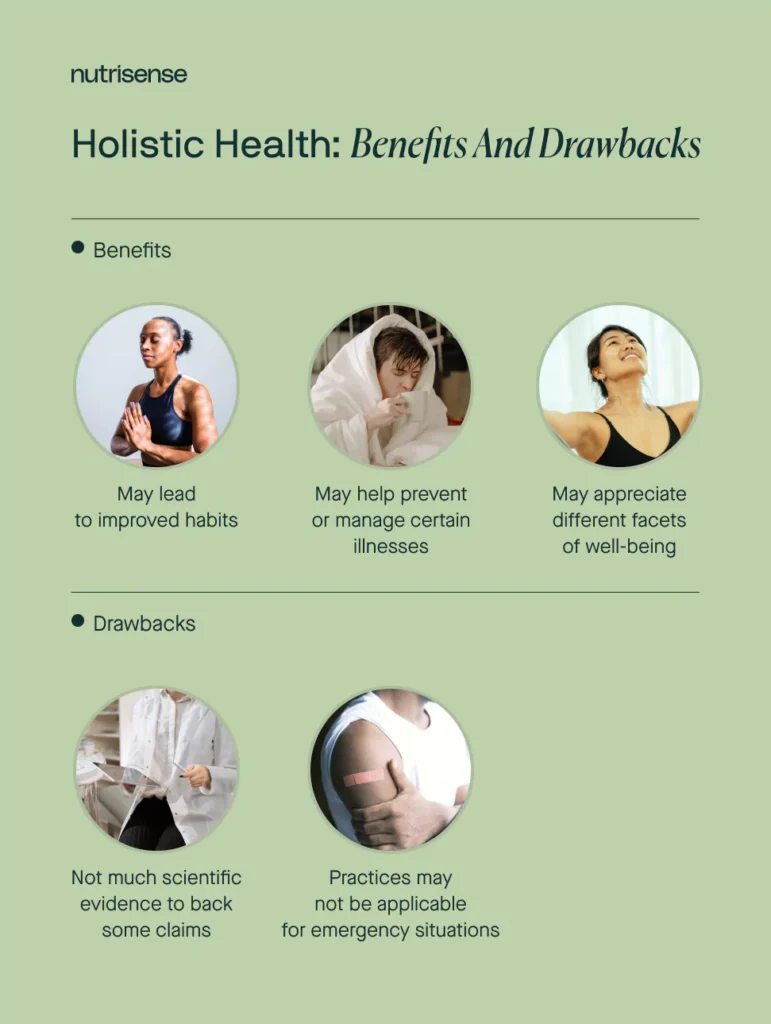
In a world that often prioritizes quick fixes and one-size-fits-all solutions, the concept of holistic health practices is gaining momentum. Holistic health is a philosophy that considers the whole person, addressing not only physical health but also mental, emotional, and spiritual well-being. This approach recognizes the interconnectedness of all aspects of our lives and seeks to create a balance that promotes optimal health. In this blog, we will explore the principles of holistic health practices and how they can help us lead a more fulfilling and balanced life.
Understanding Holistic Health
Holistic health is rooted in the belief that health is not merely the absence of disease but the presence of overall well-being. It acknowledges that the mind, body, and spirit are interconnected, and imbalances in one area can affect the others. To achieve holistic health, one must consider multiple dimensions:
Physical Health:
This includes a well-balanced diet, regular exercise, and adequate sleep. A healthy body is the foundation of holistic health, as it provides the energy and vitality required for other aspects of well-being.
Mental Health:
Mental well-being involves managing stress, nurturing a positive mindset, and developing emotional intelligence. It’s about finding strategies to cope with life’s challenges and maintain mental clarity.
Emotional Health:
Emotional health is all about understanding and expressing our emotions in a healthy way. It involves self-awareness, empathy, and the ability to build and maintain strong, supportive relationships.
Spiritual Health:
While spirituality is a personal journey, it’s an essential part of holistic health for many. It doesn’t necessarily relate to organized religion but focuses on finding purpose and meaning in life.
Environmental Health:
Our surroundings significantly impact our well-being. A healthy environment includes clean air, water, and a connection to nature. Reducing exposure to toxins and leading a sustainable lifestyle are also essential.
Social Health:
Building a strong support system, connecting with others, and fostering a sense of community are integral to holistic health. Social health encourages us to prioritize relationships and build a network of people who nurture our well-being.
Holistic Health Practices
Now that we understand the various dimensions of holistic health, let’s delve into some holistic health practices that can help us attain and maintain a balanced life.
Mindful Eating:
Holistic health starts with what we put into our bodies. Instead of following restrictive diets or fads, focus on mindful eating. This means savoring each bite, paying attention to hunger cues, and choosing whole, nutritious foods. Avoid processed and artificial ingredients, and prioritize organic and locally sourced produce.
Regular Exercise:
Physical activity is crucial for overall health. Find an exercise routine that you enjoy, whether it’s yoga, running, swimming, or dancing. Exercise not only keeps your body in shape but also reduces stress and boosts mood.
Meditation and Relaxation Techniques:
To support mental and emotional health, consider incorporating meditation and relaxation techniques into your daily routine. These practices can help reduce stress, improve focus, and promote a sense of inner peace.
Emotional Expression and Therapy:
Emotions are a natural part of being human, and it’s vital to express them in a healthy way. If you’re struggling with emotional issues, seeking therapy or counseling can provide valuable support and tools for coping.
Mind-Body Connection:
The mind and body are deeply interconnected. Practices like yoga and tai chi can help strengthen this connection, promoting physical and mental balance. These activities also emphasize breathing and mindfulness, which are essential for holistic well-being.
Spiritual Exploration: Engage in activities that nurture your spiritual side. This might include meditation, prayer, or spending time in nature. Reflect on your values and beliefs to find meaning and purpose in life.
Eco-Friendly Living: Promote environmental health by adopting eco-friendly practices. Reduce waste, use sustainable products, and make choices that minimize your impact on the planet. By doing so, you contribute to the well-being of the environment and, in turn, your own health.
Community Engagement:


Building a supportive social network is integral to holistic health. Engage in activities or groups that align with your interests and values, fostering meaningful connections with others.
Achieving Balance
The key to holistic health is finding a balance that works for you. This may vary from person to person, as everyone’s needs and circumstances are unique. Here are some tips to help you achieve balance in your holistic health journey:
Self-Reflection:
Regularly take time to reflect on your overall well-being. Are there areas that require more attention? Are there practices that no longer serve you? Self-awareness is the first step to positive change.
Goal Setting:
Set realistic goals for each dimension of holistic health. These goals should be specific, measurable, and achievable. For example, if you’re focusing on physical health, your goal might be to exercise for 30 minutes five days a week.
Consistency:
Consistency is key in maintaining balance. Make holistic health practices a part of your daily routine. Over time, they will become habits that support your well-being.
Seek Support:
Don’t hesitate to seek support from professionals, whether it’s a nutritionist, therapist, or fitness trainer. They can provide guidance and expertise to help you achieve your holistic health goals.
Adjust and Adapt:
Life is dynamic, and circumstances change. Be prepared to adjust your holistic health practices as needed. What worked for you in one phase of life may not work in another.
Conclusion
Holistic health practices provide a comprehensive approach to well-being that considers the mind, body, and spirit. By addressing multiple dimensions of health, we can achieve a more balanced and fulfilling life. It’s essential to remember that holistic health is a journey, not a destination. Embrace these practices, tailor them to your needs, and enjoy the rewards of improved physical, mental, emotional, and spiritual health. In doing so, you’ll create a more harmonious and vibrant life that resonates with your true self.










+ There are no comments
Add yours